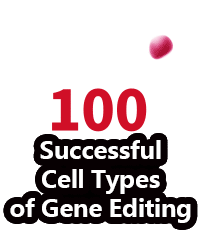High-throughput screening of AAV vector capsid libraries reveals unexpected insights
Researchers have used high-throughput screening of adeno-associated viral (AAV) vector capsid libraries to maximize the likelihood of obtaining AAV variants with desired properties. As a result of these experiments, they gained some unexpected insights, reported in an article published in Human Gene Therapy, a peer-reviewed journal from Mary Ann Liebert, Inc., publishers.
Mark Kay and colleagues from Stanford University (Stanford, CA) coauthored the article entitled "Tracking Adeno-Associated Virus Capsid Evolution by Thigh-Throughput Sequencing." The researchers used high-throughput screening of barcoded AAV capsid libraries to track directed AAV capsid evolution. The ultimate goal is to be able to more quickly identify improved recombinant AAV vectors for use in clinical gene therapy trials.
Among the most important findings was the following: it is not essential to use multiple rounds of selection, and this may in fact be counterproductive. Functional and efficient AAV variants were obtained after only one round of selection. Additionally, infection with a high multiplicity of infection (MOI) is preferable to infection with a low MOI, as the use of low MOIs results in more variation between screens and is not optimal at selecting the most desired capsids. Furthermore, competition can take place between AAVs with specific capsids in cells that. Have been infected with different AAVs. Other key findings are outlined in the article.
"This cutting-edge work by Dr. Kay and his Stanford colleagues is helping to make directed evolution of AAV capsids less of a 'black box'. His insights are likely to result in the discovery of important novel capsids that might otherwise be overlooked."
Editor-in-Chief Terence R. Flotte, MD, Celia and Isaac Haidak Professor of Medical Education and Dean, Provost, and Executive Deputy Chancellor, University of Massachusetts Medical School, Worcester, MA
Source:
Mary Ann Liebert, Inc.
Journal reference:
de Alencastro, G., et al. (2020) Tracking Adeno-Associated Virus Capsid Evolution by High-Throughput Sequencing. Human Gene Therapy. doi.org/10.1089/hum.2019.339.
Ubigene Biosciences is co-founded by biological academics and elites from China, the United States, and France. We are located in Guangzhou Science City, which serves as a global center for high technology and innovation. Ubigene Biosciences has 1000㎡ office areas and laboratories, involving genome editing, cell biology technology, and zebrafish research. We provide products and services for plasmids, viruses, cells, and zebrafish. We aim to provide customers with better gene-editing tools for cell or animal research.
We developed CRISPR-U™ and CRISPR-B™ (based on CRISPR/Cas9 technology) which is more efficient than general CRISPR/Cas9 in double-strand breaking, CRISPR-U™ and CRISPR-B™ can greatly improve the efficiency of homologous recombination, easily achieve knockout (KO), point mutation (PM) and knockin (KI) in vitro and in vivo.
Genome Editing Platform
——Focusing on the Application of CRISPR-U™ and CRISPR-B™ Gene Editing Technology
1. Provides various types of gene-editing vectors for different species.2. Provides different virus packaging services, including lentiviruses, adenoviruses and adeno-associated viruses.3. Provides high-quality services for gene knockout, point mutation and knockin cell lines.
Cell Biology Platform
——Focusing on primary cell
1. Provides over 400 types of primary cells.2. Provides culture strategies and related products for different cell types.3. Provides cell biology-related services such as cell isolation, extraction and validation.
